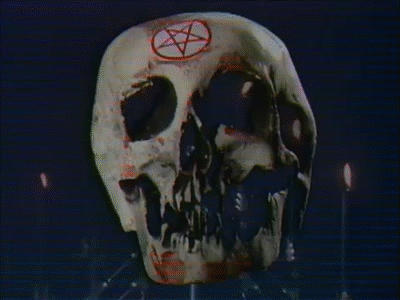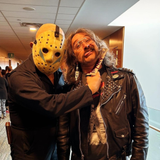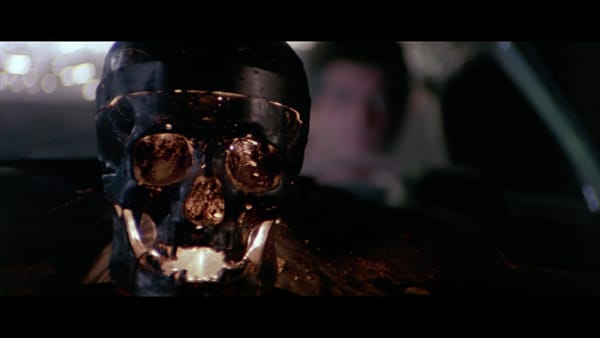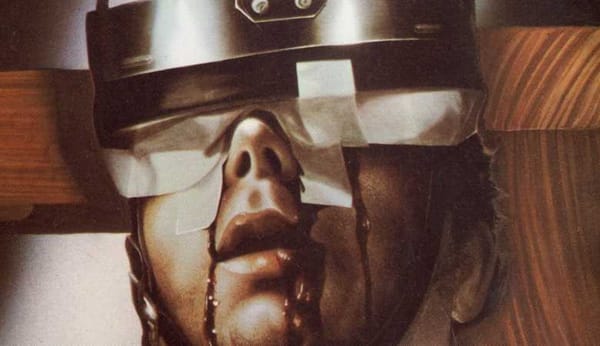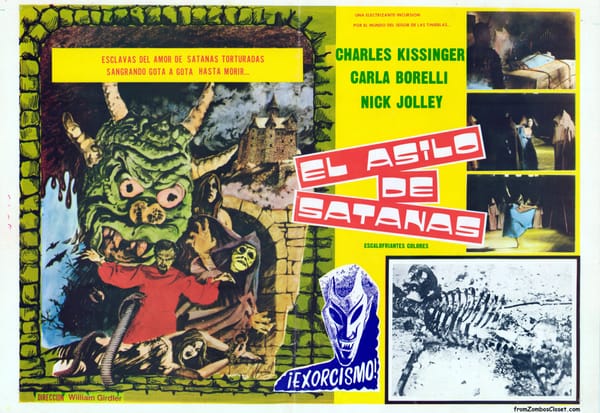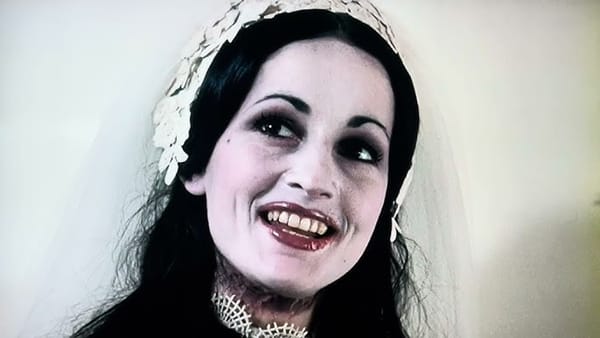Horoscopes In The Desert: On The Hills Have Eyes (1977)
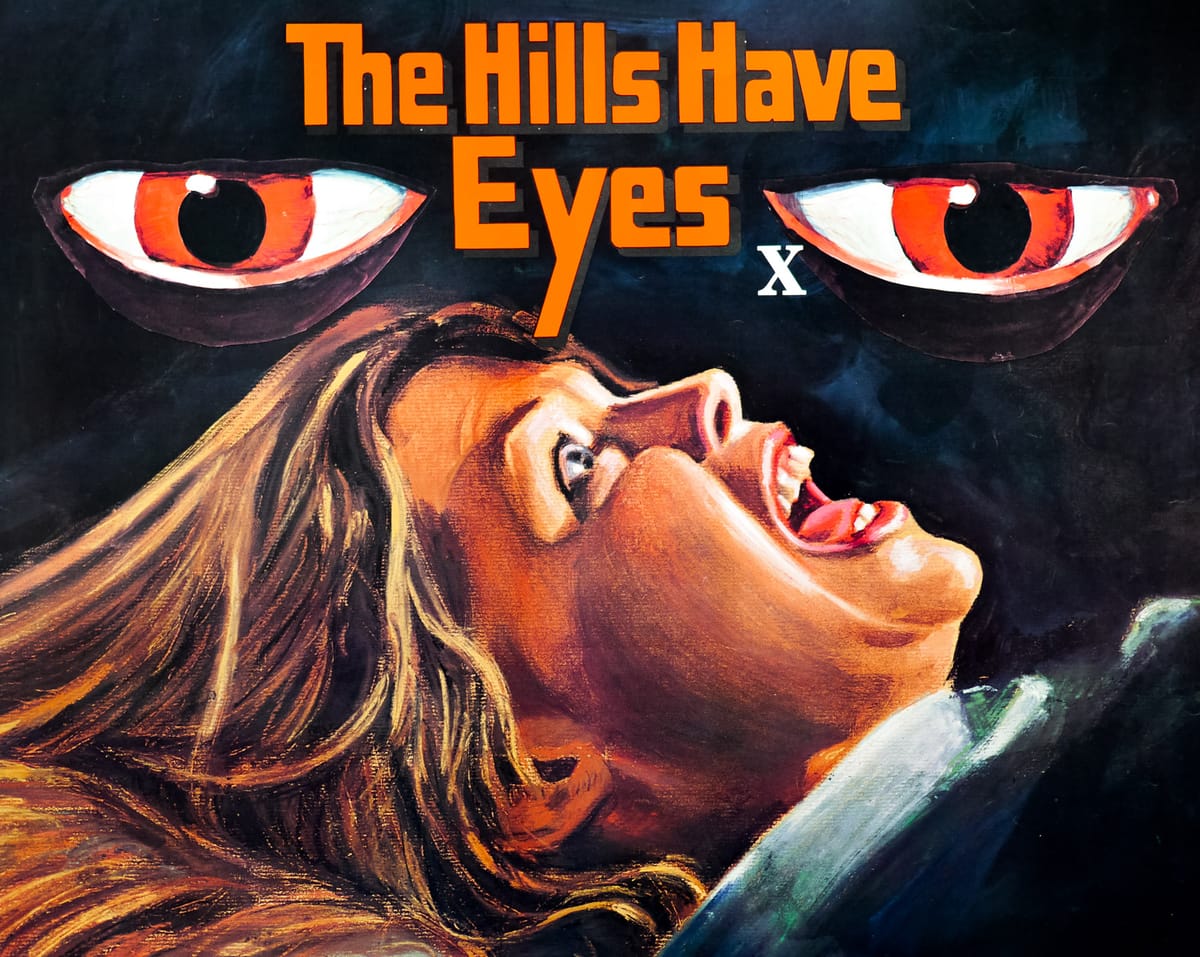
Your senses become attuned in the desert. I used to think it was a blessing, but I'm not so sure now. There are things I'm proud of. I can show you where the coyotes fight and where scorpions have their promenade à deux. I can hear a cigarette lighter torch a coffin nail from miles off and know well the sound of the retching, destitute gambler. Coming from Vegas, they tend to pull over near my humble home, sweating with failure. They leave their jumbo shrimp and t-bone steaks piled neatly by the roadside, barely digested. With time my senses became more attuned. These are the gifts I am learning to regret.
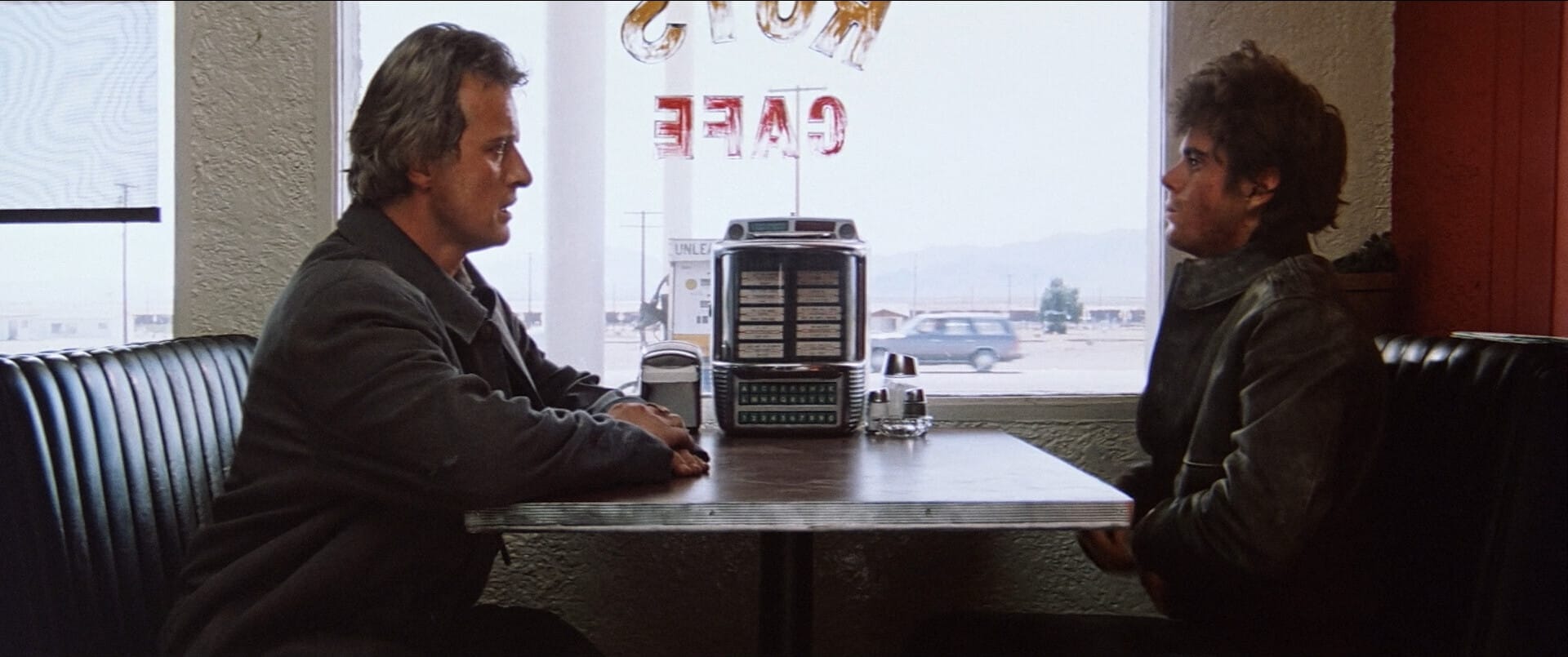
I can hear the tinkle of a wind chime made from bird bones. It hangs above the entrance to a clapboard shack by a dirt road that abruptly ends. Someone murdered two children in that shack with a pick axe. When it storms, the wind carries the children's voices, telling me the name of their killer. I can hear the sedans that line up near a rock formation by the quarry every full moon. The people that drive them chant loudly in unison. I thought the chants Gregorian, but I translated the Latin, and the sentiments are obscene. The thing that answers them visits me in my half-remembered dreams. I can spot the eyes of the one coyote with mange. They do not blaze the way they should. His eyes told me there are tunnels beneath us that stretch on and on. The things that walk them chitter with excitement. They know a time is coming soon when they will again live above the ground. It will be when the sun turns black and man becomes dust. The things I see and hear drink deep of my sanity. There's a sediment at the bottom of the bottle, and it is unholy.
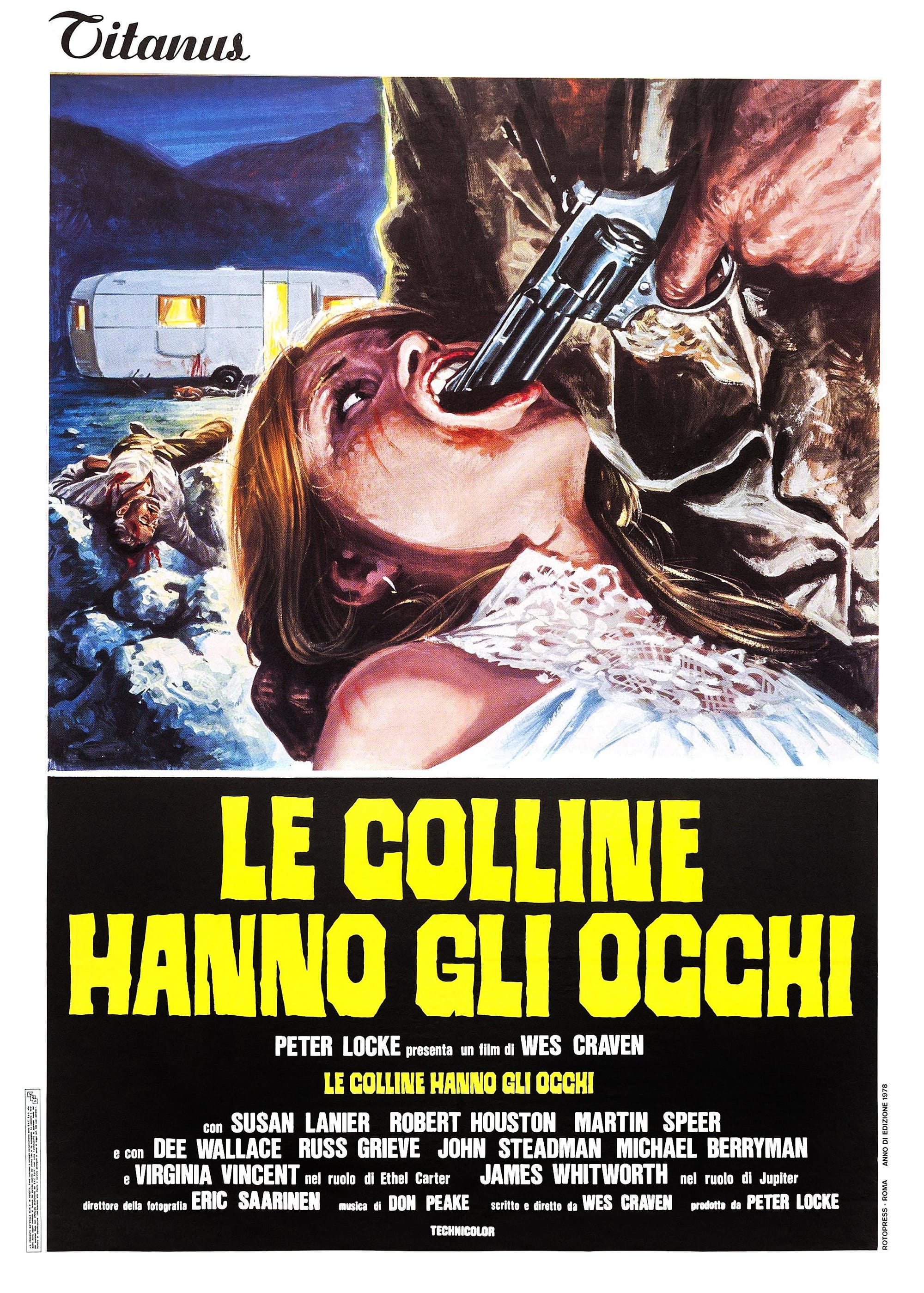
Wes Craven started as a heathen of a director. Twelve years into his career he would grip American cinema by the throat thanks to the claw of burnt (implied) rapist Fred Krueger. That's all well and good, but I'm more interested in the deviancy that came before. At eighteen, I was revolted by The Last House On The Left. Revisiting it decades later, I'm enraptured. There's ostensibly a Smokey and The Bandit -esque theme song for Krug and his gang of vicious murderers that is sung by none other than David Hess. Craven strips the paint off the "enlightened" seventies so we can breath deep the dry rot and asbestos beneath. Where would he go next? Off to the desert to turn Americana into agony.

THE HILLS HAVE EYES is interested in ugliness. It probes at it like a kid dissecting a frog. The Carter family (Jimmy had just started his presidential term) are the nuclear ideal. Three generations crammed into a shiny new RV with two dogs and not a care in the world. Certainly not enough care to listen to Fred at the gas station. The sunburnt eccentric who told them to stay on the main road. Marooned in the desert, patriarch Big Bob returns to Fred and this time he has a history to tell. It's about his son, Jupiter, who ate man and beast alike. Fred split his skull and yet he lived, making a family in the inhospitable. That is pulling yourself up by your boot straps. Now he roams the hills with sons named for planets. A pantheon of unhinged Roman gods with razor teeth and malformed skulls, the entities of a horoscope that promise only carnage.
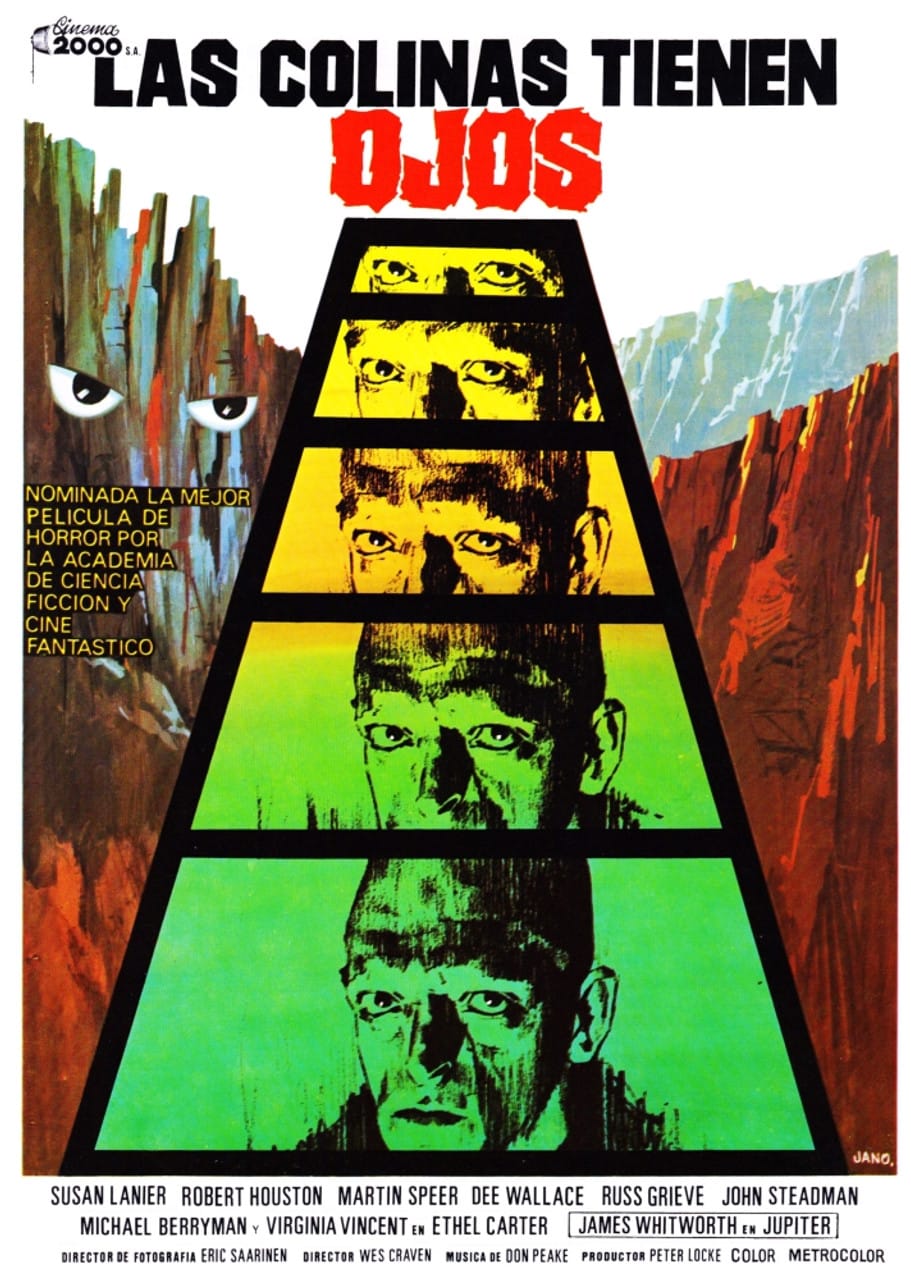
For our sins Big Bob is crucified and burned alive, a distraction so Jupiter's kin can rape and pillage. Nothing goes to waste, and Bob's meat becomes a meal for the family that lives in the spaces between. Craven is not yet sated. By the time the last moment of violence fades to red, we've gotten to see how far the Carters will go to protect their own. They're the Swiss Family Robinson with gore soaked arms and empty stares, their violent victory a cold comfort. The kind of cold that only comes with the desert night, so frigid no amount of blankets will shut it out. It's pure ugliness and man is it beautiful to see.
-Dr. Benny Graves
